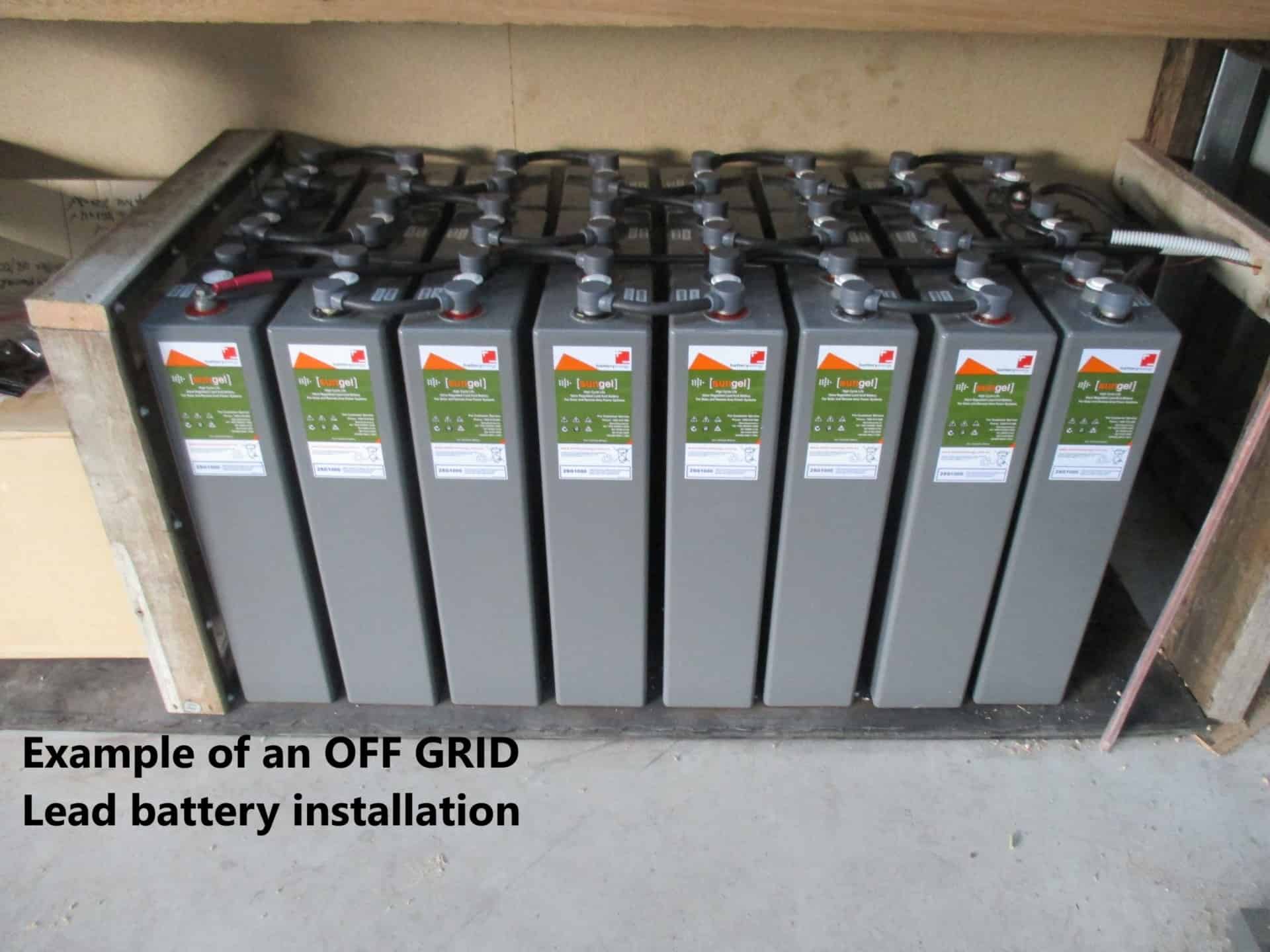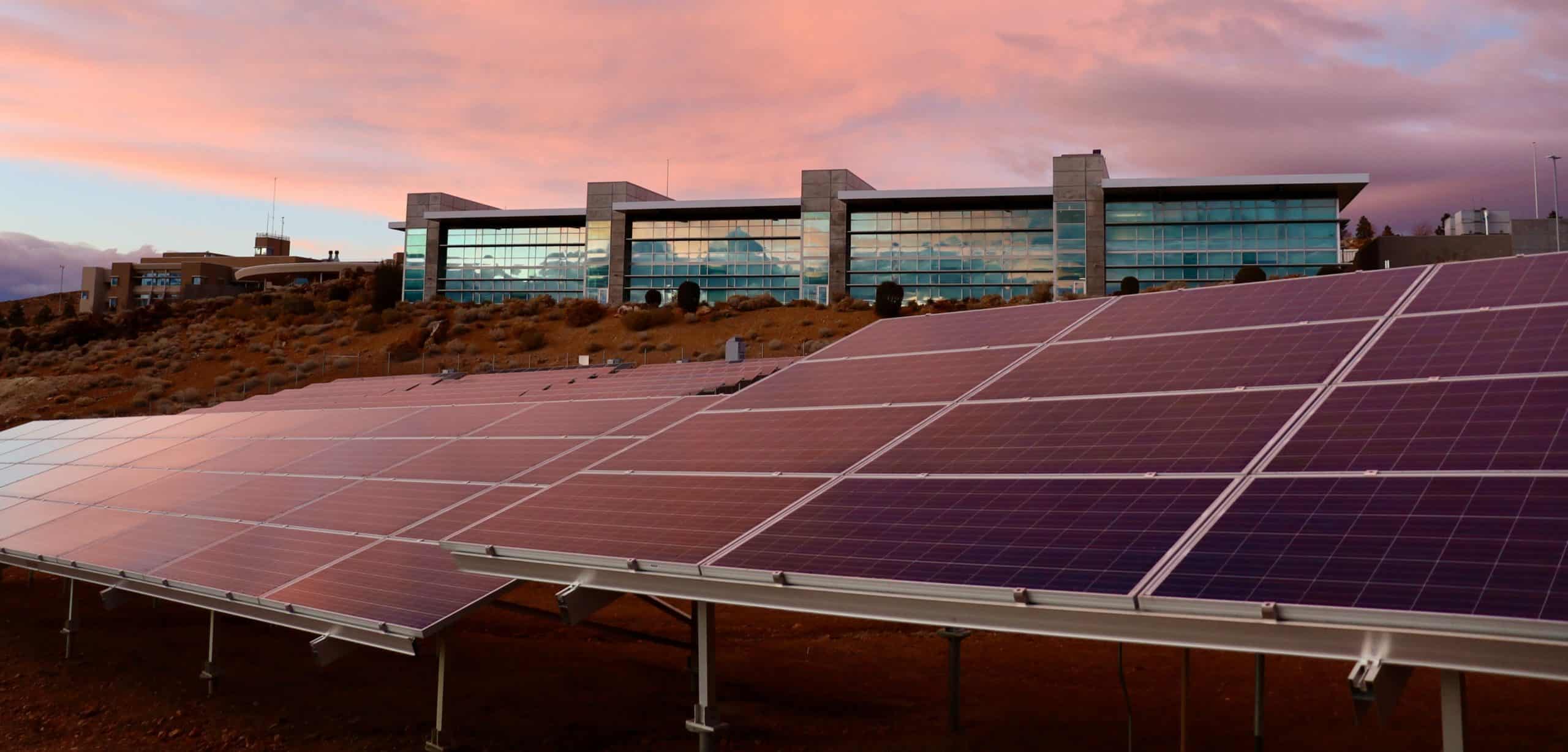Save Now, Pay Later.
With flexible payments from handypay.
Save Now, Pay Later.
With flexible payments from handypay.
Published

Just continuing on from last week’s discussion about off grid solar systems. (If you missed that article, click here: August is Off Grid Month)
We mentioned DC coupling and AC coupling.
Just to refresh for those that came in late on this conversation. Solar panels make Direct current or DC power, batteries are DC as well but inverters convert AC to DC.
Good name for a rock band in there somewhere.
Off grid solar systems come in 2 common types, DC coupled and AC coupled. They can also be a combination of the two.
DC Coupled is the most common and the most reliable over time.
DC coupled is taking the DC power directly from the solar panels and via charge controller charging the batteries which also take DC power. The charge controllers prevent the solar from overcharging the batteries.
So DC power comes out of the solar panels and goes directly into the batteries.
It’s that simple.
The multi mode off grid inverter then takes that DC power and coverts it to AC power to energise the home or site.
Pros of DC Coupling
Cons of DC Coupling
For most off grid systems DC coupling is the best way forward.
This leads us to AC Coupling and this is a lot more convoluted way of getting the DC power from our panels into the battery bank.
AC coupling is when we use a grid connect inverter connected to the solar panels to convert the DC power into AC power which is then fed into the multi mode inverter which then converts the AC power back into DC power so it can charge the batteries.
How does a grid connect inverter work without the grid? This is where it gets complicated but in layman’s terms the multi mode inverter fools the grid inverter into thinking it’s on the grid. The multi mode off grid inverter controls the output of the grid connect inverter as well. There is a bit more to it than that but let’s just say that is the basic operation principle.
Pros of AC Coupled
Cons of AC Coupling
AC coupling is an example of “just because you can do something doesn’t mean you should”.
We mostly use DC Coupling for our off grids as it is a simple solution with known reliability and when the systems we install are the only thing between our clients sitting in the dark eating cold beans and living the life they want to live keeping things simple is the key.
We do however use AC coupling for different jobs and for sites that have high daytime loads. I’m designing one at the moment where we will be operating pumps during the day so having a grid connect inverter running the site and supporting the off grid inverter will be a good outcome. But we will also be having a small portion of the solar panels connected to the batteries as well.
So both styles of coupling solar panels in off grid solar systems have their place but this is where an experienced off grid designers such as DMS Energy comes into play. Allow us to design the system that is right for you. We have been building off grid systems for 13 years from shacks, houses, resorts, rural and for industry. We have sent off grid systems to far flung corners of the earth.
We are the largest Victron users and seller on the North-West Coast and we have access to all the gear you might requires for your off grid big or small.
If you want to know more pop into 56 Sheffield Rd Spreyton or call us on 1300 502 599 if you want to find out more.

Simple, Low Rate Green Loans

Introducing award winning finance provider, Handypay, to bring you the most Competitive, Flexible and Versatile finance solution available in the home improvement industry today!
We have partnered with Handypay so customers can access a simple, affordable green loan for their solar panels and home batteries. Get a no-obligation quote and pre-approval in minutes, not weeks.
DMS Energy strives to Honestly, Ethically and Accurately assist Tasmanians to meet their energy reduction goals.
DMS Energy have advised countless locals on the right energy solutions for their home’s and business’s.




DMS Energy are not your typical energy efficiency salesmen! We are long time locals offering expert advice on solutions that are tailored to your individual needs. Talk to one of our experts today.